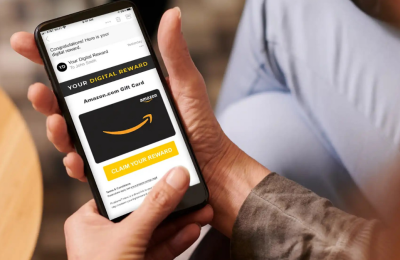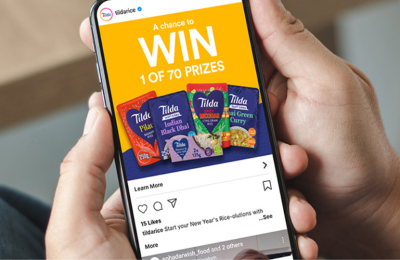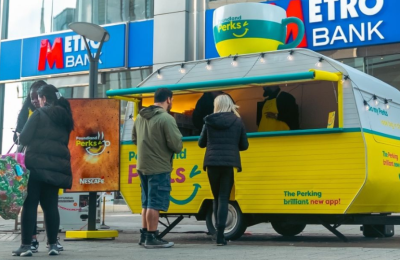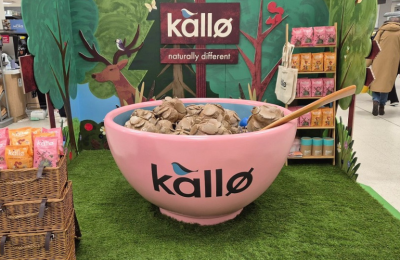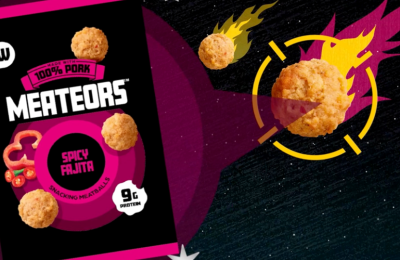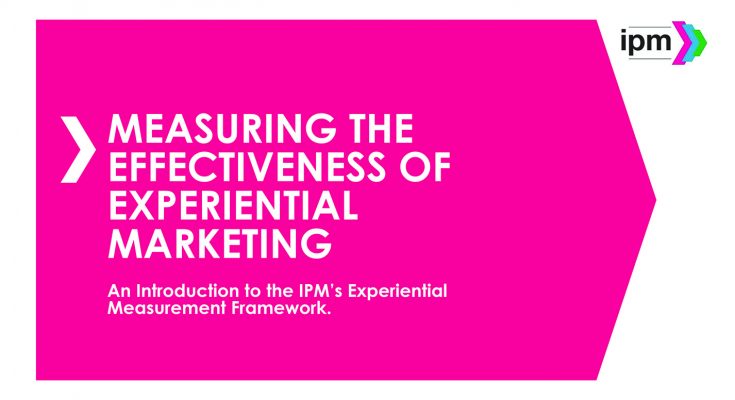The Institute of Promotional Marketing has launched a major year-long project, the Experiential Marketing Framework, to create an industry-agreed effectiveness model for experiential campaigns, and has recruited leading brands and agencies to help it validate an experiential measurement model.
Brands involved include Sky, Dorset Cereals, Fuller’s and St Austell Brewery, while agencies include Circle, Wasserman, Jack Morton, Leith, PrettyGreen, TRO, The Bridge, Ambient, Curb, Haygarth and Wolf Brand Experience. Other partners are measurement specialists RedRoute International and the University of West of England’s Business School.
The IPM, the UK marketing industry trade body for promotional and experiential marketing, says the objective is to measure pre-and post-experience audience behaviour and look at benchmarks around increasing brand affinity, increasing purchase intention, behaviour change, engagement dwell time, Return on Investment, cost per contact and reach.
Carey Trevill, Managing Director of the IPM, says: “We know experiential works – but in an increasingly results-driven marketplace, we have to be able to prove it and also work out exactly which approach works best for different brands, different audiences and different locations. Without a standardised industry benchmark, even the most the exceptional work that is produced will struggle to answer the question, did it work and can you prove it? We’ve been working on this project for more than two years now, and it’s time to open it up to a wider audience to help us prove the effectiveness of experiential, show how it works with other channels including digital and drive even more growth in the sector.”
Jessica Hargreaves, Managing Director of agency PrettyGreen and Chair of the IPM Experiential Council, says: “We know that many agencies and brands are diligently working to analyse their own campaigns to prove experiential effectiveness. However, for these results to be taken seriously, we need industry standards and it became clear that by collaborating our learnings and methodologies we can create benchmarks and start to build a solution that can deliver trusted results.”
Steve Messenger, a Director of RedRoute International, adds: “The campaigns that have trialled the framework approach so far have been able to demonstrate to their clients the positive ROI that experiential provides in ways that they understand and have confidence in. Obtaining more evidence through further use across a wider range of campaigns and situations will serve to strengthen that body of knowledge and also contribute to the marketing industry’s wider efforts to demonstrate marketing effectiveness.”
The IPM is looking to recruit more brands and agencies to help in the project and has published an outline of the project which can be downloaded from www.theipm.org.uk.
Carey Trevill points out that, although experiential is recognised as the fastest-growing non-digital element of the marketing mix, there is currently no standard industry-agreed approach to experiential evaluation, which experts argue is putting some clients off investing in the sector.
According to estimates from Campaign and Event magazines, agency brand experience budgets were £171.9m in the 12 months to June 2016, with the spend in London alone standing at at least £81.4m.
The IPM aims to work on evaluation tools that will cover reach, impact and ROI from Experiential Marketing campaigns in order to improve confidence in the strategic benefits of experiential. At the same time, it wants to create common industry standards, benchmarks and terms for experiential marketing practice and enhance the reputation of the experiential marketing industry.


